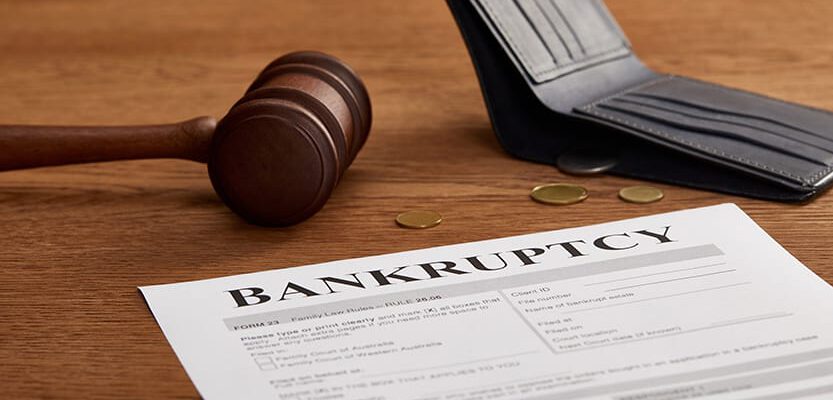When things get tough and you’re drowning in debt, it may feel like you need to file for bankruptcy. While this is true in most cases, you need to be sure that you understand what kind of debt this process will take care of. So, what debt does bankruptcy cover?
Filing for bankruptcy will cover most forms of debt like medical bills, credit card charges, money that you owe because of lease agreements, business debts, utility bills, etc. With that being said, some debts won’t be discharged, such as student loans, child support, alimony, etc.
In this article, I want to go into a bit more detail when it comes to the types of debt that will and won’t be covered under bankruptcy, inform you about exceptions that may occur in your case, and also outline the differences between chapter 7 and chapter 13 bankruptcy.
If that sounds good, let’s get into it right away…
Which Debts Are Covered by Bankruptcy?

Let’s first take a look at some major forms of debt that will be covered by filing for bankruptcy:
- Credit Card Debt
- Medical Bills
- Personal Loans from relatives and employees
- Utility Bills
- Auto Accident Claims
- Dishonored Checks
- Business Debts
- Civil Court Judgments
- Veterans Assistance Loans
What Debt Is Not Covered by Filing for Bankruptcy?
Some forms of debt are not covered even if you file for bankruptcy. Let me outline them, so you can make sure that you don’t file for bankruptcy for the wrong reasons:
- Student Loans
- Social Fund Loans
- Most Types of Taxes
- Child Support
- Alimony
- Fines that you owe to agencies of the Government
- Court Fines
- Personal Injury Debt
Exceptions to Debt Dischargement

I’ve got more bad news, unfortunately. The court may refuse to discharge some of the debts you have even if they’re covered under bankruptcy in most cases. That may be due to some specific factor in your history that makes you ineligible for debt relief.
Let’s see what these factors could be:
- You have hidden property from creditors
- You have not accounted for lost assets
- You have committed perjury
- You have destroyed records
Also, note that the court may refuse to discharge debts if you have filed for bankruptcy in the past and it wasn’t more than 6 or 8 years ago.
In the case that you file for Chapter 7 bankruptcy two times within 8 years, you will not be eligible for debt dischargement the second time. That’s because you are only allowed to get debt dischargement using Chapter 7 every 8 years. The same thing applies to Chapter 13, with the sole exception that 6 years must pass instead.
Now, this is not the only difference between the two types of bankruptcy. Let’s look at some more and you decide what’s right for you…
Chapter 7 vs Chapter 13: Which Is Right In My Situation?
The most important difference between Chapter 7 and 13 is that in the former, you will be able to clear most of the debt, but the catch is that you will have to surrender some assets like cash and property.
Chapter 13 will allow you to get rid of some debt you owe too, but it won’t require you to surrender your assets.
Now, before you file for bankruptcy, consider the following things that come with Chapter 7:
- It can help you get relief for most debts
- It can reduce the load that comes with debt-repayment programs
- You may clear your debts much faster than if you filed for Chapter 13
- You will lose some of your assets
- You could hurt your credit
And let’s also outline some things that come with filing for Chapter 13:
- You will get to keep your property
- You can still file for bankruptcy even if you have sufficient income
- You can repay your debt
- You could have a problem saving for retirement because of the repayment plan
- The damage that you do to your credit may be not as severe
- If you fail to keep up with the repayment plan, you can lose your Chapter 13 status and therefore, some of your assets
- It could take you 3 to 5 years to completely discharge your debts
Conclusion
So, as you can see, bankruptcy covers a lot of types of debt, but not all. Debt like past-due alimony checks and student loans will still have to be fully repaid.
And when it comes to the dilemma between filing for Chapter 7 or 13, you first need to consider whether you would like to keep your assets or not; the latter bankruptcy status will help you do that, while the latter won’t. You also need to decide whether you would like to get your debt discharged within months (Chapter 7) or right away (Chapter 13).
But in any case, you better think about it well before you file for bankruptcy. It may feel like it’s the only option, but it might not be in your best interest. So, take the time to review your financial situation with a financial advisor before you get in contact with an attorney and move things forward.
Now, did this article answer your question? Please, consider sharing it with others if you feel like it did. Also, you can ask me or tell me anything you like by leaving a comment below and I will get back to you as soon as I can.
Thank you for reading and I’ll talk to you next time!
Disclaimer: This information should not be viewed as financial advice. You should consult a financial advisor or do your own due diligence before you invest. The owner of this website and author of this article are not to be held liable for any undesired result by anyone who uses this information that is provided here in any way.

